|
Tues Aug 1st, 2017
Air Canada Centre (ACC) Toronto, Ontario, Canada Your first thought might be "Why would a film composer perform in a hockey arena?" The answer is, there is no better venue suited for this type of show. Lets start with the sound. When I have attended film scores performed live in the past, the performances have been incredible but they dont sound like they do in a movie theatre. Loud. The Hans Zimmer show was loud, and then some! I felt like I was inside an Imax movie! The incredible sub-bass (and I can't imagine what massive sub-bass would do to a concert hall) hit you right in the heart and stayed there for some time. I heard gasps from the audience at one point where I swore the subs hit the "brown note". This was rock-concert sub! From my seat (6th row centre) the sound mix was perfect. At times I could have sworn I was listening to a recording but the active 50-piece orchestra convinced me otherwise. While a portion must have been samples and/or loops (I could see the monitor with punches and streamers, and video elements were in sync) the performing musicians stole the show. On stage were some of the worlds best musicians, along with some very special guests. A highlight was definitely an appearance from the original Lion King choral arranger / vocalist Lebo M. "The original Lion King.", said Hans. Hans told the story about Lebo's daughter's birth at the time of the Lion King recording sessions and what could be considered a "Circle of Life" moment, she joined them on stage with her powerful vocals during a Lion King medley that could have easily closed the show. But this was just the first half. Throughout the show you could here elements of Georgio Morodor, Harold Faltermeyer and Danny Elfman...but this was somehow all Hans. While you don't get the rousing, catchy melodies you experience in a John Wiliams score, you get a slow, layered, build with dense harmonies weaving in and out of keys, and heart pounding percussions with occasional sound effects created by the musicians themselves, playing their instruments in atypical ways like the distorted electric Cello with a bouncing bow performed by superstar Cellist Tina Guo (she could easily do a concert on her own), or the pounding on the body of a bass guitar (Hans with a Rickenbacker). This wasn't your usually sheet-music focused orchestra, and not that there is anything wrong with that, as we were treated to drum solos during Crimson Tide, a guitar quintet during Gladiator, loads of incredible guitar solos and an almost complete frontline, musical attack, of female musicians during the Superman vs. Batman Wonder Woman piece. Some of these musicians know the music intimately having played on the actual soundtrack recordings. Most of the musicians in front didn't use sheet music as they wandered the stage like rock stars and never missed a single cue. Not sure they could have seen the music if they wanted to as strobes, spotlights and smoke added to the spectacle with a simple but effective lighting grid and semi-circle video screen behind the orchestra. "No musician left behind" could have been the motto of the night. From the 16 part choir in the back to the superstar players and guests. Hans credited them all with much gratitude (and self-deprecation) with some great stories to boot! My favourite was a funny anecdote about a long-time band mate encouraging him to leave one window-less job (composing in a studio) only to show up in another (The Air Canada Centre). There were a few touching moments where he dedicated pieces to the peoples current struggles in Venezuela, the victims of the Colorado shooting during the Batman premiere, and Heath Ledger's performance as the Joker, all with the underlying message that music unites. And unite they did! Some pieces were introduced and others needed no introduction. The brass blasts of Inception were paired with spotlight-stabs scanning the audience which felt like we were part of an alien abduction, Pirates of the Caribbean medley needed no introduction but incase you didn't know, the accordion player had a toy parrot on his shoulder the whole time. Hans & Co. took us on a musical journey through some of Hollywood's biggest films including Driving Miss Daisy, Sherlock Holmes, Crimson Tide, Gladiator, The Lion King, Madagascar 2, Da Vinci Code, True Romance, Thema and Louise, Rain Man, Man of Steel, Batman vs. Superman, Thin Red Line, Amazing Spiderman 2, The Dark Knight, Interstellar and Inception. (Thank you Setlist.fm) Not as progressive as a Goblin show and not as 80s rock as a Trans Siberian Orchestra show, Hans Zimmer Live has its own brand of bringing instrumental music to the live masses. From slow building art-house pieces to the heavy driving riffs worthy of a Marilyn Manson intro, this was a rare opportunity to see film score music presented the way I think it should be presented. Big and loud! I recently took the Hans Zimmer online Master Class. Once you pay the fee, you get access to watch about 23 pre-recorded videos where Hans sits inside his studio and gives you his take on music and musical choices. I do love listening to his approach and philosophies. (Take the class and you will know why Batman can only have two notes!). Soon after I finished all the videos I heard about the tour. Knowing this really would be a rare treat , I bought myself a 6th row floor seat, grabbed a bag of popcorn and a Coke (just like the movies), and picked up more merch than I did at an Iron Maiden concert, which ended the exact same way...a loud speaker recording of "Always look on the briiiight side of life." Nathan Fleet is a film composer, filmmaker, guitarist and runs the Hamilton Film Festival. The theme of the 2017, 12th Annual Hamilton Film Festival is music.
2 Comments
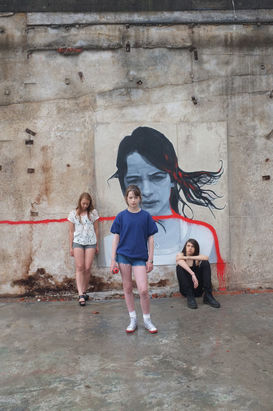 "The next game changer in cinema won't be a new camera or some advanced technology, it will be the female filmmaker." - Nathan Fleet, Hamilton Film Festival As I write this, the Hamilton Film Festival is receiving a large number of films and I am noticing more entries from female directors. Maybe it's always been this way and I am just noticing it now. Maybe there are more females making films than in previous years, or maybe it is because we have been more vocal about female filmmakers making it onto our screens and they are finding a home at HFF. Whatever the reason, I am very glad it is happening. I can't pin-point the difference between male and female directors, I just notice that there is a difference. It could be that I see the name / photo of the director as I scroll through the film list on Film Freeway but side by side, they have just as much edge, attitude, fearlessness, bravery, passion, and attention to detail, but there is something else to these films. Perhaps it is a new emerging voice that hasn't been allowed to express itself as easily as male filmmakers have, or a new generation of girls who were brought up to know that they could do anything they wanted to do. I personally have taught film classes and notice a pretty even ratio of male:female participants. What ever the reason, I don't know it but the results are in and they are proving to be great. My daughter recently looked at me sideways when I told her that only 2 women had won Best Director at Cannes. (An angry sideways, not a confused sideways) Looking back, since we started giving awards, 3 of 8 Jury Choice awards went to female filmmakers. Best Music, Student, Screenplay, Doc, Short and Editing have all been awarded to a female at HFF. While we haven't made our selections for the 12th edition of HFF yet, I have already seen some incredible work from female directors, and writer/directors come through. If our past is any indication, we will see many more this year! P.S. and as I write this, we have 3 female programmers and 2 male programmers at HFF this season. Photo: There Should Be Rules, 2015 Jury Choice Award winner Linda-Maria Birbeck Photo courtesy of Snap'd Hamilton. L-R: Daniel Baldwin and Nathan Fleet, Audience members, the sold-out Zoetic Theatre during a screening I want to start this off by saying it is not the responsibility of the general public to support a film festival. It's the festival's job to create an event the public can't stay away from! I start every year with that thought in mind. The list below is for filmmakers and audience members. Full disclosure, I run a film festival. I should also mention that the festival I run (The Hamilton Film Festival) is my small business and runs outside of the traditional Not-For-Profit festival model which means I can't get local, regional or national governement grants. It means that the money has to be made through fees, sponsors and ticket sales. Why would I bother telling you that? Because it takes year-round work to make a festival tick and I wouldn't bother doing it if I didn't think it was important. Many people that say they want to go to the cinema to see indie films, which is great, but on the flip side, social posts are filled with statements like "I just binge-watched a whole season onNetflix!" People can pretty much watch what they want, when they want, without leaving the comforts of their dwelling. What can a film festival offer that you can't already get? In 2016 the Hamilton Film Festival screened about 175 movies that were, for the most part, exclusive to the film festival circuit at that time, and from countries around the world. For true cinephiles, this kind of stuff is cinematic heaven. But you can't maintain a festival with that alone. Where does the filmmaker and general public fit in? The experience. This experience differs quite a bit from going to the local multi-plex or watching from the comforts of your home. Here's how in a Top 10 list. 1. Pure cinema Festival films are, usually, not yet rated so you will see a film that is in it's purest form. Not edited for television, cinemas or content. Viewer discretion is often advised but you don't get watered down versions of anything. They also often take more narrative risks than mainstream films. A film festival will find these and often create special programs around themes or genres. 2. Meet the maker or an on-screen personality The person or people who made it will likely be sitting next to you. Filmmakers want to network as much as possible and want to get their message out. They don't have the backing of a major company so they must be their own travelling publicity team, and they will be more than happy to chat with you over a brew or coffee. Almost every festival has had that "special guest" show up to represent a film they were a part of. Even if you aren't star-struck, you can have some incredible conversations with some of these name stars who are always good for a story or two! 3. Exclusivity You will have the bragging rights to tell all your friends about the movie you saw FIRST that no one may ever see. You wont know it at the time but you could be watching a future hit or the birth of someone's great career! 4. Your film has a home If you are an independent filmmaker thousands of miles away, it would be very difficult for you to rent a theatre to show your movie, advertise for it and bring the crowds. This would cost hundreds, maybe thousands of dollars to do. A festival takes care of that for you and will draw attention to the collection of films that you will be a part of. If you are lucky you may get a nomination, award and/or a mention in the press. This can go a long way as you will see in #5 5. Distribution. I've heard it before and I heard it again on a distribution panel last year. Distributors suggest getting your film into a festival. They want to know that your movie has been "filtered" and they are paying attention. Getting reviews, laurels or awards go a long way in the marketing and release of a film once you get a distributor(s) on board. As much as some filmmakers want to dispute this fact, your film on a digital platform with no reviews / laurels, next to a film that has it's poster full of them, will often get passed over. Several distributors are also content creators and you will see them out there on the circuit as well. That should tell you something. 6. Captive Audience A film festival is so unique in that you have a captive audience, no distractions in a dark room for almost 2 hours. The audience is watching and listening! 7. Shorts! Very simple, if you don't like the film you are watching, wait 5 minutes. Film festivals are the best, and likely the only place, to watch short works on a big screen. 8. Obscure Do you even know what an experimental film is? Good chance your local film festival is screening one. These are often my favourites as they really cleanse the cinema pallate and can be very inspiring and/or mind-bending. Enter with an open mind and I guarantee you will leave with questions and conversations. 9. We are there together When you are sitting in a room full of people, all watching the same movie, laughing together, gasping together, it's like an instant "share" button except that everybody gets it at the exact moment you do. It's a great feeling. 10. Bucket List I have heard many people talk about taking a chance and buying a ticket to their local film festival. This is a great experience that will help you tick one item from that list...and you might just make some new friends who you will see again when you return the next year! What are you waiting for!? Google "name of your city" + "film festival" and make your way to the local cinema! Nathan Fleet operates the 12th Annual Hamilton Film Festival, The Hamilton Film Expo and the Canadian Film Market and is an award winning filmmaker and composer.
Hamilton Film Festival @HamiltonFilm on twitter @hamiltonfilmfestival on instagram You are on the festival circuit, you only have so much money to spend (or your country has restrictions and you actually have no way of paying ) but your strategy includes getting into some film festivals. As the head of the Hamilton Film Festival, I completely understand this. We aren't a huge festival but we are growing rapidly and I want to share some tips on requesting a waiver, what it looks like from our side of things, and why you may or may not receive a waiver.1. It's work.
Our festival has 6 programmers and they are paid to watch, rate, comment and suggest films. Imagine we grant 6 waivers for feature films. That is a full days work. We had around 100 requests and if you do the per-minute math, that is a lot of work. Festivals cost thousands of dollars to run and that includes staff, theatre rentals, printing, advertising, special guest, postage, travel...The smaller festivals are not just raking it in. I can't stress enough how much work goes into the selection process. The festival lasts seven days, watching films takes months. 2. Make it personal. There is nothing worse than getting an email telling you how important it is that they get into your prestigious festival while you are CC'd with 20 other festivals. Someone who does the research, and reflects that in their request, shows that they likely have a film that would fit the festival. We had a great request this year from someone who knew some specific things about the fest. A little research can go a long way. 3. Let us know what you want to submit. "I wan't to submit my film but I can't afford the fee. Can I get a waiver?" A message like that tells the programmers nothing and likely gets moved into the trash. The most important information is the length, the genre and a trailer. With those three things, a decision can be made pretty easily. 4. Sanctions. There are certain countries that have restrictions from making payments online. It is an unfortunate thing and our festival does take these requests seriously as we want everyone to have the same opportunities as the rest of the world. Don't be discouraged if you are not granted a waiver. It could be for many reasons. I will say that some of these films are absolutely incredible and it is a good feeling knowing that we can share their work with our audiences. 5. Paying Customers. If we have 100 requests, we have 600 paying filmmakers and they do get priority. All our waivers get looked at but they are usually some of the last things we take care of before the final deadline. By the end of the submission process, we've rated some films very highly and you are now competing against them in a jury pool and will be judged a little more harshly. 6. Make notes. This year I saw the same name, same request, come through about 5 times. We have a form response when someone requests a waiver but they clearly didn't note that we had already responded and they sent the same email on a monthly basis. Please keep a log of who you connect with, and what the response was. A follow up is fine. Five of them is a little much. 7. We're all nobody. In the indie film world, we are all in the same boat working with similar budgets. Please don't tell us how great you are, how great your team is and how amazing your movie is. Please be realistic, highlight legitimate achievements and believe me, your film tells us everything we need to know and the programmers will decide if it is amazing. 8. Take the discount. We have often only granted a discount instead of a waiver. This is usually a cue that the festival has exhausted its resources to watch movies and it is offering what it can. 9. We aren't worth it. You have just finished explaining all the festivals you got into but have now run out of money and need a waiver. Nuff said. 10. It's already out there. I know exactly how this went down. You made a film and immediately thought the best thing to do was to upload it to YouTube, Facebook, Vimeo and share it with the world, sat back and waited for the million hits. When that dream didn't turn out so well, you went back to the festivals in search of an audience. Problem here is that everyone who wanted to see it has seen it and the film has lost most of its value. (This also applies to submitters that have paid entry fees) It is true that you could get fresh eyes but there is no way a festival can promote you with your website or filmmaker links because it will direct the audience right to your film before we've had a chance to present it. A venue can cost between $200 - 2000 to rent so empty seats are not an option. I hope that helps some of you and while our submissions are closed for 2016, next year is just around the corner! Nathan Fleet operates the 11th Annual Hamilton Film Festival, The Hamilton Film Expo and the Canadian Film Market and is an award winning filmmaker and composer. Hamilton Film Festival @HamiltonFilm |
Nathan Fleetis the director of the Hamilton Film Festival and is an award winning filmmaker and composer. Archives |
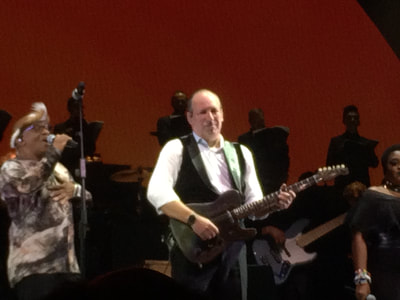
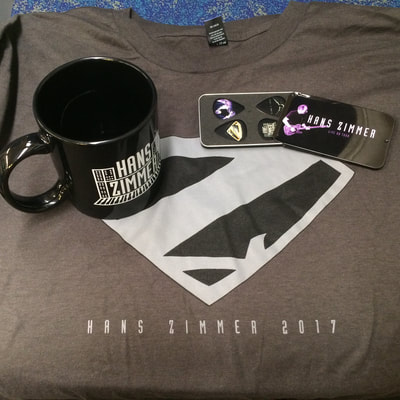
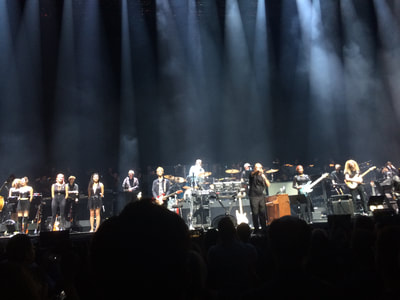
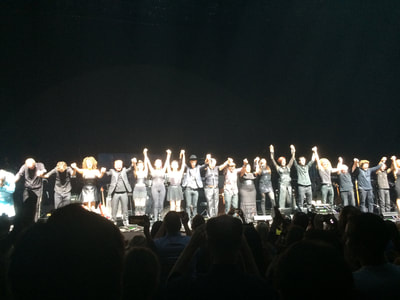
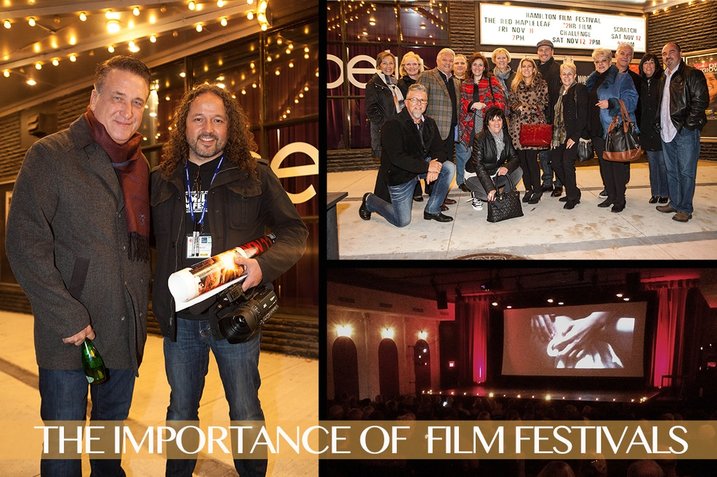
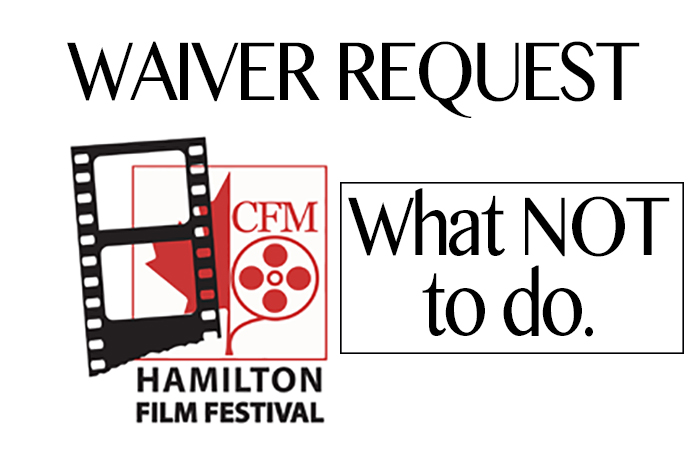

 RSS Feed
RSS Feed